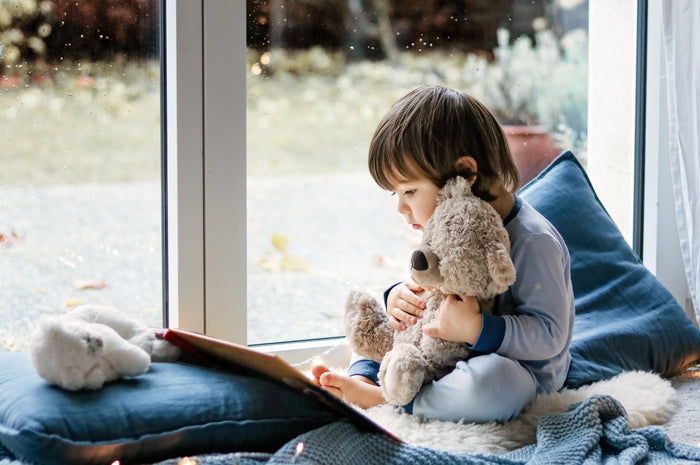20 Things Every Parent of Kids with Special Needs Should Hear

1.
There may not be anyone else with the same constellation of symptoms as your child but there are people with similar challenges. Find those people. I have never met anyone with all of these same challenges as my kid but I have a strong network within each separate diagnosis. We have made wonderful friends and have found—and I hope provided—a great deal of support within each of these. I just have to pop onto one of my Facebook groups and I’m immediately reminded, I’m not alone.
2.
We are placed in a position of caring for others nearly constantly. However, you still need and deserve to be cared for. That entails asking friends or family to bring a meal by every now and then, or going for a pedicure, or a date night, or whatever else you enjoy doing. Whatever makes you feel special and taken care of, take the time to enjoy it, you are worth it!
3.
No one is perfect. We all make mistakes. We can wallow in our goof-ups or move on! Try to shift your thinking, maybe there was a good reason you missed that appointment, that you were sure was on Tuesday but apparently was on Monday. Maybe your kiddo had a tough day at school and just needed the night off. Who knows? But beating yourself up isn’t going to change the situation, so try to move on.
4.
You may not leap buildings in a single bound or run faster than a speeding bullet but you are a superhero none the less. Every day, you manage situations that a regular parent would think are impossible. You stretch tight muscles, remember pills, inject and infuse the medicine. You hold hysterical children during horrendous medical procedures. You deal with tantrums and meltdowns. And most often manage not to have a tantrum or meltdown yourself. You encourage your child to do things doctors told you they would never do but you never gave up hope. You are a therapist, nurse, doctor, friend and confidante. You are no regular parent.
5.
Having sat in on several therapy sessions, I have been frustrated by what I thought was premature discharge from therapy on more than one occasion. Since then, I have grown, I have learned and I have come to understand. For children, therapy is play and play is therapy. What I mean is that the best therapists find ways to make my son engage in challenging activities that he otherwise would have balked at, by making it a game that he wanted to play. We took a page from their book and did the same at home.
6.
Yes this is different from number five. After discharge from therapy, we sought extra curricular activities for my son that would offer therapeutic benefits. He played sled hockey, runs on a track team, learned to shoot archery and takes swim lessons. All of this is therapy. He’s learning, having fun and getting stronger. Win, Win and Win!
7.
We super parents tend to be fairly busy and often over scheduled. However, while everything on your calendar is important, it’s also important to make time to play, laugh, be silly and just enjoy your kids. Read to them, snuggle with them, engage with them with what’s important in their worlds. Make memories outside of hospital walls.
8.
You will have to make painful decisions that hurt your heart and leave you questioning everything you thought you knew or understood. Know that you are doing your best, remember number three. I am guilty of agonizing over these types of decisions, they can become really overwhelming to me. Talk about your conundrum with others who get it and trust yourself to make the best decision. Make it move on and once it’s made don’t rethink it. Easier said than done, but worth a try!
9.
Many of the choices you are forced to make have no right answer, just the lesser of the hard and painful wrong choices. You will do your best but you won’t always get it right no matter how many sleepless nights you spend agonizing over how to handle a situation.
10.
Yes, you will screw things up sometimes despite the very best of intentions. No amount of torturing yourself will make you feel better, nor will it help you to make better choices. Remember many of the toughest decisions have no right answer.
11.
It can also be extra rewarding. Make us extra passionate. And will almost always make life extra interesting. With the challenges come the rewards. Sometimes you have to search your heart for the rewards but they are there if you look for them.
12.
For those folks who are trying to win a marathon, there are no breaks. If you want to stay in the race, you eat, drink and even pee while running. But our marathon will go on for the foreseeable future and beyond. So remember, you don’t need to win, just make it to the end. The guy who comes in last place in the marathon, he took breaks, he stood and drank some water, grabbed a quick bite and used the porta-john for his business, then got back on the road. Give yourself those moments—however brief—that are for yourself. Goodness, you might even get to pee in peace every now and then.
13.
Don’t let being the parent of a special needs child create or reshape your identity. We are many things, being the parent to a child with special needs is part of our identity. But it shouldn’t be all of our identity. When you focus all of your life, all of your contacts, all of yourself around your child and their needs, who you are can get lost. Find things in your life you enjoy doing, a glass of wine, a hobby, shopping for yourself.
14.
Certain things get under my skin, we all have our buzz issues, one of mine is people first language. But if you’re not careful, you can become overly sensitive to so many things that people start to avoid your company. Many colloquialisms like “I almost had a stroke”, or “I nearly had a heart attack” are disconcerting to parents whose children have in fact had a heart attack or a stroke. However try to remember that people are not making these comments to offend or upset you.
15.
Brag about those accomplishments that might seem small to others but are huge for our kids! Our kids develop on their own clock, they learn many skills late and some they never master. A wiggled toe that couldn’t wiggle before, a word, a sentence, a smile, a hug, whatever that milestone may be, share it with those who love you and your child.
16.
I know how hard it is to hear from parents that their child six months younger than yours is walking and yours isn’t. Or dealing with the well meaning stranger who asks why your 2-year-old is scooting around on their butt rather than being up on their feet. Try to remember that these people lack the context that we are constantly embedded in. Explain, teach, be patient, raise awareness amongst those who just don’t get it. And remember, typical parents deserve the right to brag too and their pride at their child’s accomplishments is not meant as a knock to your amazing kiddo.
17.
This is another challenging one folks, but worth the work. All kids are different, typical, or with extra challenges and they will grow and develop at their own pace. If a developmental milestone isn’t met as you think it should be, certainly talk to your child’s doctor. Comparing, siblings, cousins, kids in the daycare class, or even comparing kids within the same disability type rarely serves to make you feel better. Your child is unique, and will have their own individual strengths and challenges.
18.
You know the one who clearly spent 10 hours creating the amazing snack shaped like an animal with licorice whiskers. The one who sends adorable treat bags for every holiday. The one who finds the coolest gifts for the teachers every year. And whose child is always dressed in the cutest outfits that somehow never get dirty. If that’s the mom you are led to be, more power to you! However, I have found that there are always enough of those mom’s in my kid’s classes to keep them in cute snacks and treat bags. Since I have bigger fish to fry, I let them have all the glory!
19.
Marriage is hard work, period. Parenting is hard work, period. Parenting a child with special needs, is especially hard work, period! For those of you who are married or in a relationship, make time for that relationship away from your children.
20.
You know your children best. Doctors, teachers, therapists are all fantastic resources but if you don’t feel like you’re being heard, or your child’s needs are being met, it’s very reasonable to get a second opinion. Don’t be afraid to fight for your child and their needs. While the professionals are experts in their areas, you are the expert on your child.























































